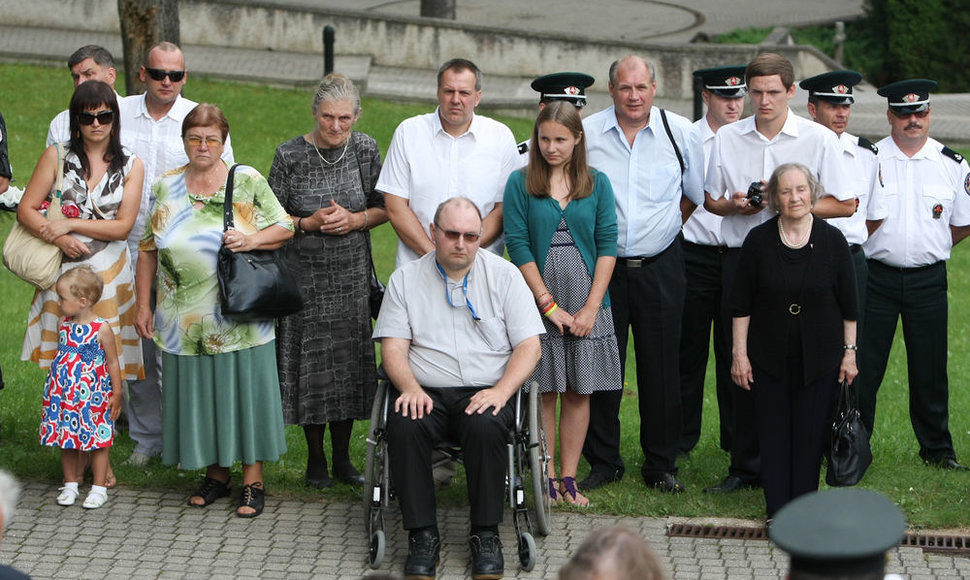The memory of the seven police, border and customs officers murdered 21 years ago was honored in a minute of silence at a memorial in Medininkai, which still features the cabin of the murdered border guards.
Speaking at the event, Lithuania's former president Valdas Adamkus said that Lithuania had no right to lower its voice in the demands for Russian extradition of OMON officers suspected of war crimes.
"We have to continue speaking clearly and directly to the world about the injustice, brutality and massacres committed by the invaders," the ex-president said.
At the same time, Adamkus said he didn't believe Russia's current administration would shortly change its stance, as, in his opinion, today's Russia looks a lot like the former Soviet dictatorship.
"No, I don't believe this. I do not believe in the statements that we have a new Russia, which would live by democratic principles. Looking from the administration's point of view, Russia's position has not changed a bit from the earlier brutal Soviet dictatorship," Adamkus told BNS.
Speaking at a ceremony with a lowered state flag, Parliamentary Vice-Speaker Erikas Tamašauskas said the Medininkai massacre was a brutal war crime, also noting the slow pace of changes in Russia.
"Medininkai remains a bleeding wound, which only justice can cure. Unfortunately, Russia is changing very slowly, and justice is not always welcome in today's world that is filled with cynicism," he said.
His words were echoed by Interior Minister Artūras Melianas, saying that "restoring justice was a key obligation" for Lithuania.
Tomas Šernas, the only survivor of the massacre who has been confined to a wheelchair, emphasized that the grand justice can only be achieved when Lithuania and Russia see the crime in the same light.
"Grand justice depends on all of us. We must all work hard to reach common grounds with Russia on the primary things and the painful things, such as war crimes," Šernas said.
Seven officers were shot and killed during the attack in early hours of 31 July 1991, namely, Mindaugas Balavakas and Algimantas Juozakas (officers of the Special Division ARAS), Juozas Janonis and Algirdas Kazlauskas (officers of the traffic police), Antanas Musteikis, Stanislovas Orlavičius and Ričardas Rabavičius (customs officers). Rabavičius died in hospital on 2 August of severe injuries.
Only one person has been brought to justice for the crime – a Vilnius court sentenced Latvian citizen Konstantin Mikhailov (formerly Nikulin) to life in spring of 2011.
Lithuanian prosecutors charge three more OMON officers - Cheslav Mlynik, Andrey Laktionov and Alexander Ryzhov – in the crime and has issued European Arrest Warrants, but Moscow has refused to extradite them.
Šarūnas Orlavičius, son of the killed customs officer Stanislovas Orlavičius (he lost his father at the age of six months), expressed certitude that the guilty would one day answer for their actions.
"To me this day means what I could have but I don't, I had a right to have but I don't. Unfortunately, not all people have answered for this. I still expect justice. A bishop said today that God puts a comma where people put a period. I hope for higher justice, if legal justice cannot be achieved," Orlavičius told BNS.


















